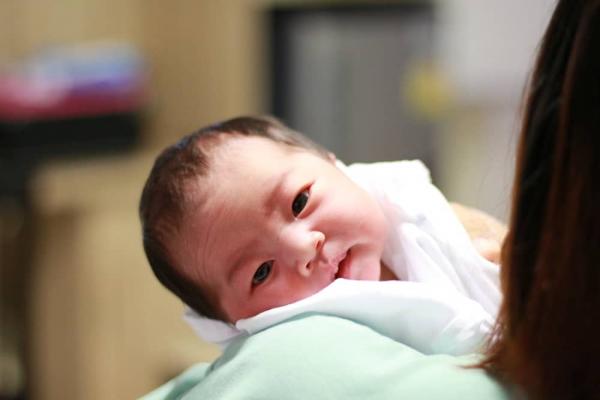
We often ignore mental health problems because we don't know how to deal with them or we don't recognize the symptoms. Postpartum depression is one of the hardest things for a new mom to go through because she not only has to deal with the feelings of depression, but also the disappointment of not feeling all the expected feelings of excitement around the new baby.
We all have questions about postpartum depression, and I have asked licensed professionals these common questions.
What are the signs of postpartum depression?
Dr. Tasha Holland-Kornegay, a licensed professional counselor, listed common signs of postpartum depression. Here are the five most common symptoms:
1. Disinterest in the baby
2. Anxiety and worry
3. Excessive irritability and mood swings
4. Thoughts of wanting to hurt the baby or self
5. Loss of interest in things once enjoyed
You may be experiencing different symptoms, but don't be afraid to talk to your doctor if you are feeling any of these symptoms. It's important that you get the help you need.
Common misconceptions
There will always be misconceptions about mental illness, and it's important to understand what these misconceptions are so that you and your family aren't afraid to seek the help you need.
Alisa Kamis-Brinda, a licensed clinical social worker, shared common misconceptions about postpartum depression.
"A common misconception about postpartum depression is that the mother doesn't love or care for her baby," she said. "Another one is that she is a bad mother. These are misconceptions because the depression is what is causing the appearance of her not loving her baby or her inability to care for her baby."
Kamis-Brinda continued by saying, "Another misconception is that a mother with postpartum depression will kill her baby. Mothers with postpartum depression are at increased risk of suicide but not infanticide. Women with postpartum psychosis, which is rare (one to two in 1,000 postpartum women), are at risk for infanticide and suicide."
Don't try to deal with it on your own
Remember you are not to blame for how you are feeling. No one is at fault when it comes to mental illness. Instead of trying to find someone to blame, focus on finding solutions and answers to help you heal.
1. Antidepressants
Work with your doctor to restore your health. There is a big stigma related to medication for mental health; remember, there is nothing to be ashamed of. Medicine was created to help heal people, not to make them ashamed of themselves. Talk to your doctor about different medication options and side effects.
2. Friends and family
Work with your spouse first and foremost, then family and friends. The worst thing you can do if you have postpartum depression is to separate yourself from the world. There are so many people who want to love and support you.
Kamis-Brinda reminds people that "self-care is the most important thing. This includes getting enough sleep, eating right and moving your body (even if you can't exercise). Oftentimes, with a new baby, these things require the help of others, so asking for help from others is very important."
Don't be afraid to "ask friends and family to help care for the baby so you can sleep or shower, ask them to cook meals, clean or anything else that you need help with."
Remember, don't isolate yourself.
3. Food
Make sure you are getting enough to eat. Don't be afraid to treat yourself to some of your favorite food. Don't turn down people's offer to make you dinner. It's OK to let others take care of you.
4. Exercise
I say exercise loosely. Mostly I mean move your body. Don't expect yourself to start running a marathon right after giving birth. Take it slow. Walk around your house, do some stretches or try different yoga positions. Don't judge yourself; just try to move your body a little more.
5. Visit a therapist
There is no shame in getting professional help. Remember that postpartum depression doesn't make you a bad mom! Get the help you need.
Postpartum depression can be scary and isolating. Don't let it control your life. Look into the different options you have, talk it over with your husband and call your doctor. You deserve to be happy. Remember you are a good person and good things are sure to come.

